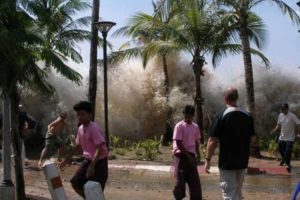Disaster
Emergency mental health lessons learned from Continental Flight 3407 disaster
BUFFALO, N.Y. — When a disaster’s physical evidence is gone — debris removed, shooter arrested, ashes cold — the psychological effects of the disaster on emergency responders and civilians involved still may burn.
Emergency mental health, a fi…
Psychological effects of BP oil spill go beyond residents of impacted shorelines
GAINESVILLE, Fla. — The psychological effects of the BP oil spill, the largest recorded environmental disaster in human history, extend far beyond people living around the areas of the Gulf of Mexico that were directly impacted by the spill, a…
‘Red mud’ disaster’s main threat to crops is not toxic metals
As farmers in Hungary ponder spring planting on hundreds of acres of farmland affected by last October’s red mud disaster, scientists are reporting that high alkalinity is the main threat to a bountiful harvest, not toxic metals. In a study in the A…
More than 3,000 survivors of the WTC attacks experience long-term post-traumatic stress disorder
January 6, 2010 — Nearly 10 years after the greatest human-made disaster in U.S. history– the destruction of the World Trade Center (WTC) towers — there has been little research documenting the attacks’ consequences among those most directly affe…
6 years after the tsunami disaster
Six years after the tsunami disaster of 26/12/2004, the set-up of the German-Indonesian Tsunami Early Warning System for the Indian Ocean (GITEWS) has been completed. The project ends on 31 March 2011. After that, Indonesia accepts the sole respon…
Victimized children involved with disasters more likely to have mental health issues
CORVALLIS, Ore. — A new national study not only has confirmed that children who have been exposed to disasters from earthquakes to fires are more prone to emotional problems, but many of those children may already have been experiencing maltreat…
‘Legacy of Katrina’ report details impact of stalled recovery on mental health status of children
Five years ago Hurricane Katrina and the flooding of New Orleans caused the evacuation of 1.5 million Gulf Coast residents. After a year, 500,000 people remained displaced, many residing in highly transitional shelters, including the notorious FEMA t…
In calamity, hospitals can safely evacuate patients
In the event of a significant threat to their buildings and facilities, hospitals can successfully evacuate patients and staff without relying on outside assistance, a UC Irvine study found. The study, which appears in the April 3 issue of the New England Journal of Medicine, also suggests that in the aftermath of a severely damaging earthquake or similarly devastating terrorist event, the biggest risk to hospitals isn’t structural integrity, but non-structural damage like water leaks and electrical outages. The findings include basic steps for responding to a bioterrorist attack on a medical facility.

